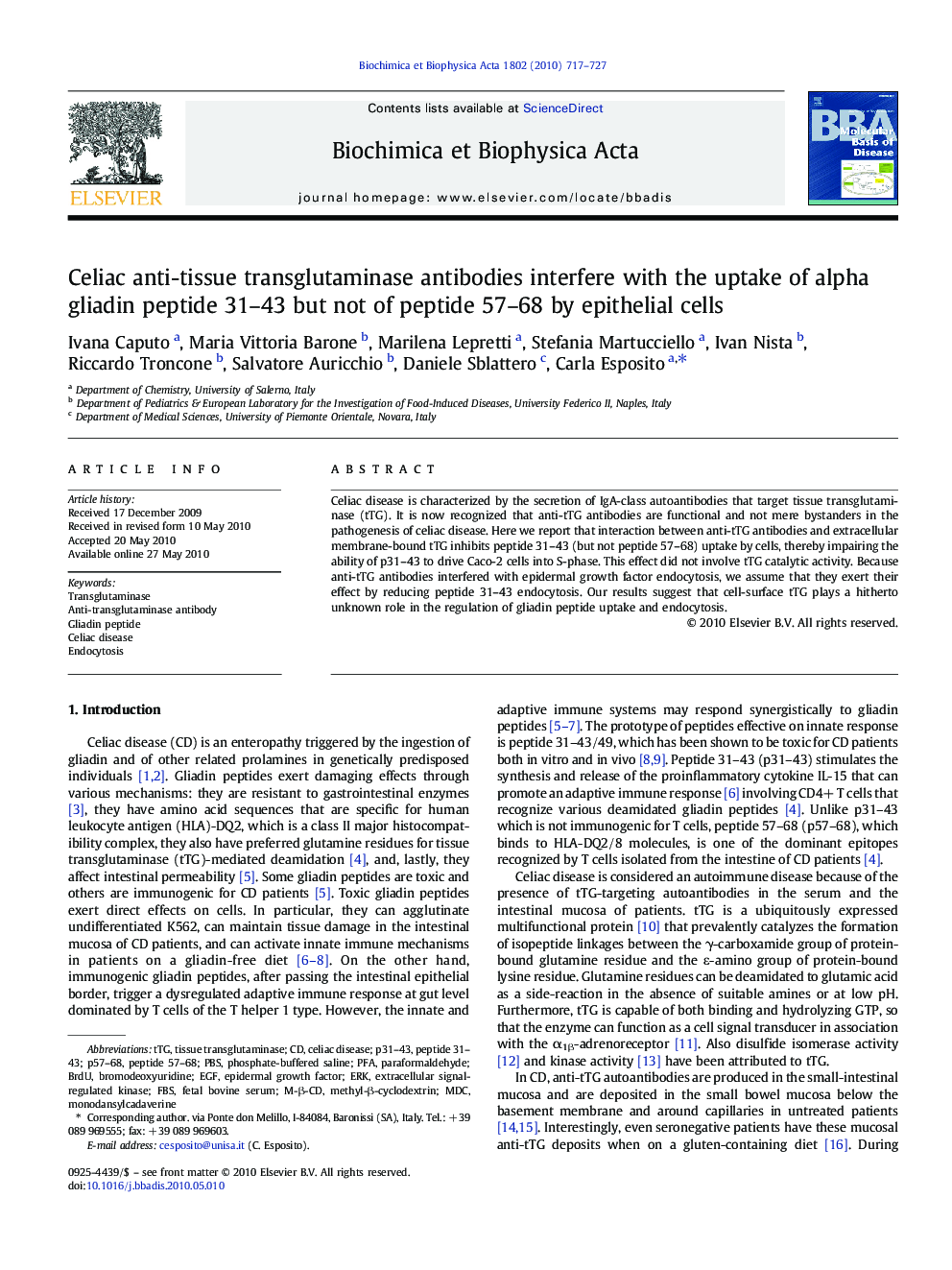| Article ID | Journal | Published Year | Pages | File Type |
|---|---|---|---|---|
| 8261844 | Biochimica et Biophysica Acta (BBA) - Molecular Basis of Disease | 2010 | 11 Pages |
Abstract
Celiac disease is characterized by the secretion of IgA-class autoantibodies that target tissue transglutaminase (tTG). It is now recognized that anti-tTG antibodies are functional and not mere bystanders in the pathogenesis of celiac disease. Here we report that interaction between anti-tTG antibodies and extracellular membrane-bound tTG inhibits peptide 31-43 (but not peptide 57-68) uptake by cells, thereby impairing the ability of p31-43 to drive Caco-2 cells into S-phase. This effect did not involve tTG catalytic activity. Because anti-tTG antibodies interfered with epidermal growth factor endocytosis, we assume that they exert their effect by reducing peptide 31-43 endocytosis. Our results suggest that cell-surface tTG plays a hitherto unknown role in the regulation of gliadin peptide uptake and endocytosis.
Keywords
Gliadin peptidePBSFBSAnti-transglutaminase antibodyM-β-CDERKTTGMDCEGFPFAEndocytosisBrdUbromodeoxyuridineCeliac diseaseTransglutaminaseTissue transglutaminasefetal bovine serumepidermal growth factormethyl-β-cyclodextrinPhosphate-buffered salineMonodansylcadaverineparaformaldehydeextracellular signal-regulated kinase
Related Topics
Life Sciences
Biochemistry, Genetics and Molecular Biology
Ageing
Authors
Ivana Caputo, Maria Vittoria Barone, Marilena Lepretti, Stefania Martucciello, Ivan Nista, Riccardo Troncone, Salvatore Auricchio, Daniele Sblattero, Carla Esposito,
